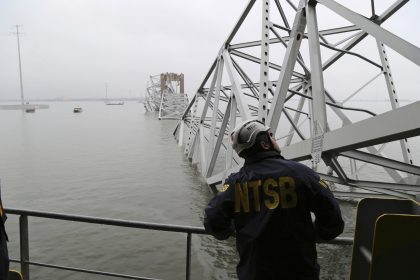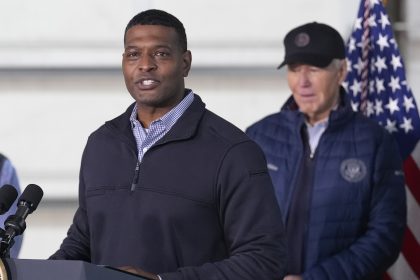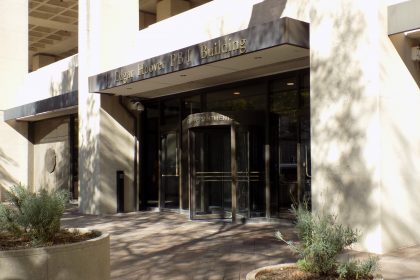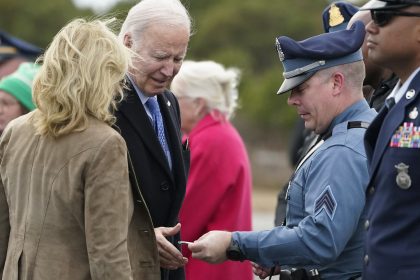White House Rolls Out Multibillion-Dollar Plan to Fix Aging Ports, Ease Bottlenecks
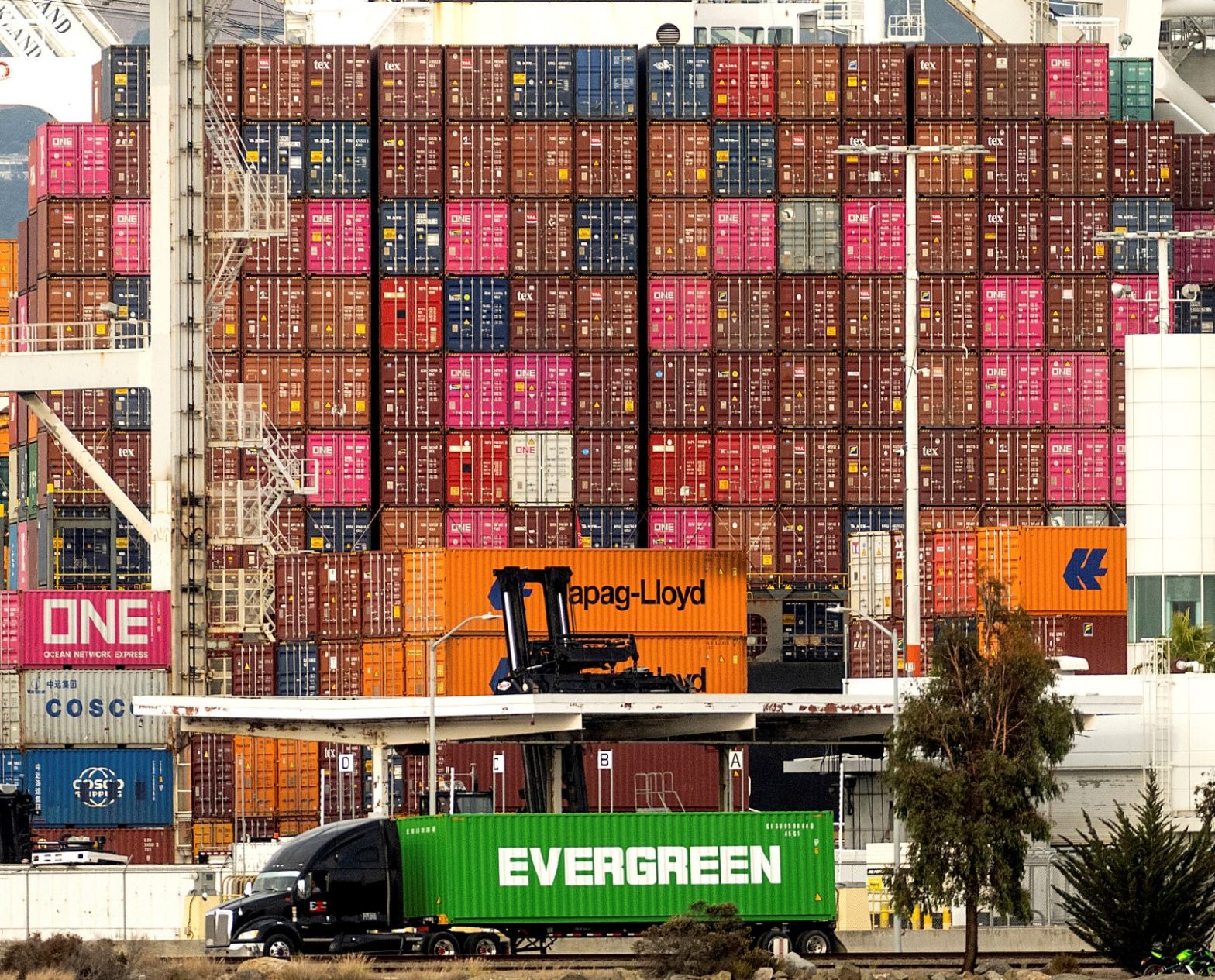
WASHINGTON — The White House outlined an ambitious multibillion dollar plan on Tuesday to dramatically upgrade the nation’s aging ports and relieve the bottlenecks that have plagued the nation’s critical supply chains since early summer.
The actions announced during a morning telephone call with reporters and in a subsequently released fact sheet outline both short- and long-term actions implementing the just passed but not yet signed bipartisan infrastructure bill.
These “concrete steps,” the administration said, are intended “to accelerate investment in our ports, waterways, and freight networks.
“These goals and timelines will mobilize federal agencies and lay the foundation for successful implementation of the historic Bipartisan Infrastructure Deal,” the White House said, promising the plan “will increase federal flexibilities for port grants; accelerate port infrastructure grant awards; announce new construction projects for coastal navigation, inland waterways, and land ports of entry.”
The roll out comes a day before President Joe Biden travels to the Port of Baltimore, Maryland, to deliver remarks on how the bipartisan infrastructure bill will deliver for the American people by preventing future supply chain disruptions.
The package includes $17 billion to improve coastal and land-based ports that can help to tackle the challenges in the longer term.
Among the steps the administration plans to take in the short-term is identifying and paying for upgrades in the next 90 days — a bid to also tamp down the inflation being caused by ships waiting to dock and a shortage of truck drivers to haul goods.
“This plan will identify $3.4 billion in investments to upgrade obsolete inspection facilities and allow more efficient international trade through the northern and southern borders,” the White House said.
Senior administration officials said other nearer-term initiatives will include:
- Launching programs to modernize ports and marine highways with more than $240 million in grant funding within the next 45 days.
- Dispersing funds through the Port Infrastructure Development Grant program, the first and only federal grant program wholly dedicated to investments in port infrastructure. In coming weeks DOT will award $230 million in funding for this program and $13 million for the Marine Highway Program to support waterborne freight service.
- Identifying projects for U.S. Army Corps of Engineers construction at coastal ports and inland waterways within the next 60 days. This plan will provide a roadmap for more than $4 billion in funding to repair outdated infrastructure and to deepen harbors for larger cargo ships.
- Prioritizing key ports of entry for modernization and expansion within the next 90 days.
- Open competition for the first round of port infrastructure grants funded through the bipartisan infrastructure deal within 90 days. DOT will announce more than $475 million in additional funding for port and marine highway infrastructure.
While the pandemic gets most of the blame for causing the current supply chain snafus, the White House pointed to the recently released 2021 Report Card for America’s Infrastructure Report issued by the American Society of Civil Engineers to highlight systemic challenges.
For example, while America’s ports supported more than 30 million jobs and approximately 26% of our nation’s GDP in 2018, the ASCE report warned that ports face extensive challenges modernizing infrastructure and maintaining essential facilities under threat from sea level rise and other climate challenges.
Only four U.S. ports are among the top 50 busiest ports in the world and no U.S. port is in the top 10. Many U.S. ports also have bridge or depth limitations that restrict their ability to receive the larger, Post-Panamax vessels that are the future of ocean shipping.
“Further, the surge of cargo coming off larger vessels can also strain outdated landside infrastructure. As a result, more container traffic flows through a smaller number of U.S. ports with the offshore and onshore capacity to handle the largest vessels and their cargo. Taken together, America’s underfunded port and waterway infrastructure has real costs for our families, our economy, and our global competitiveness,” the White House fact sheet said.
In addition to its efforts at the nation’s ports, the administration said it will also invest massively in “shovel-worthy” projects that revitalize other critical elements of America’s transportation infrastructure and supply chains.
This includes an additional $110 billion to repair roads and bridges and support major transformational projects.
To help states and other grantees direct federal resources to transportation supply chain needs, the administration will develop a comprehensive freight movement playbook on how states can use Transportation Department grants to support goods movement and help alleviate freight bottlenecks.
This playbook will also highlight policies, funding and financing available to strengthen the supply chain.
Under the Bipartisan Infrastructure Bill, the White House said, states will receive more than $50 billion per year in federal-aid highway funding, much of which can be used to repair and modernize existing infrastructure to improve the performance of freight corridors.
The administration also said it plans to strengthen the resiliency and leverage digitization of the supply chain to eliminate inefficiencies that occur when cargo moves from one port of the supply chain to another.
As part of this effort, the Transportation Department, working with the Federal Maritime Commission, will publish a request for information on standardized data exchange requirements for goods movement in the transportation supply chain.
“Standardized data are an important first step to ensure interoperability among actors in the supply chain and greater transparency, resiliency, fluidity, competition, and efficiency across the supply chain,” the White House said.
In related news, President Biden spoke Tuesday with the CEOs of Walmart, UPS, FedEx and Target to get updates on their efforts to speed goods through the supply chain and make sure store shelves are well stocked for the holiday season.
What he heard was mostly positive.
Despite global disruptions due to the pandemic, America is moving record volumes of goods from its ports to shelves and homes.
For example, the Ports of Long Beach and Los Angeles, which import 40% of all containerized imports into the country, are handling the most goods in their history, 17% more than their previous record year.
This is a result of Walmart, UPS, Target and FedEx all partnering with the ports in a move to 24/7 operations.
And Frederick W. Smith, CEO of FedEx, told the president his company expects to move 100 million more packages this holiday season than in 2019.
Dan can be reached at [email protected] and at https://twitter.com/DanMcCue




















